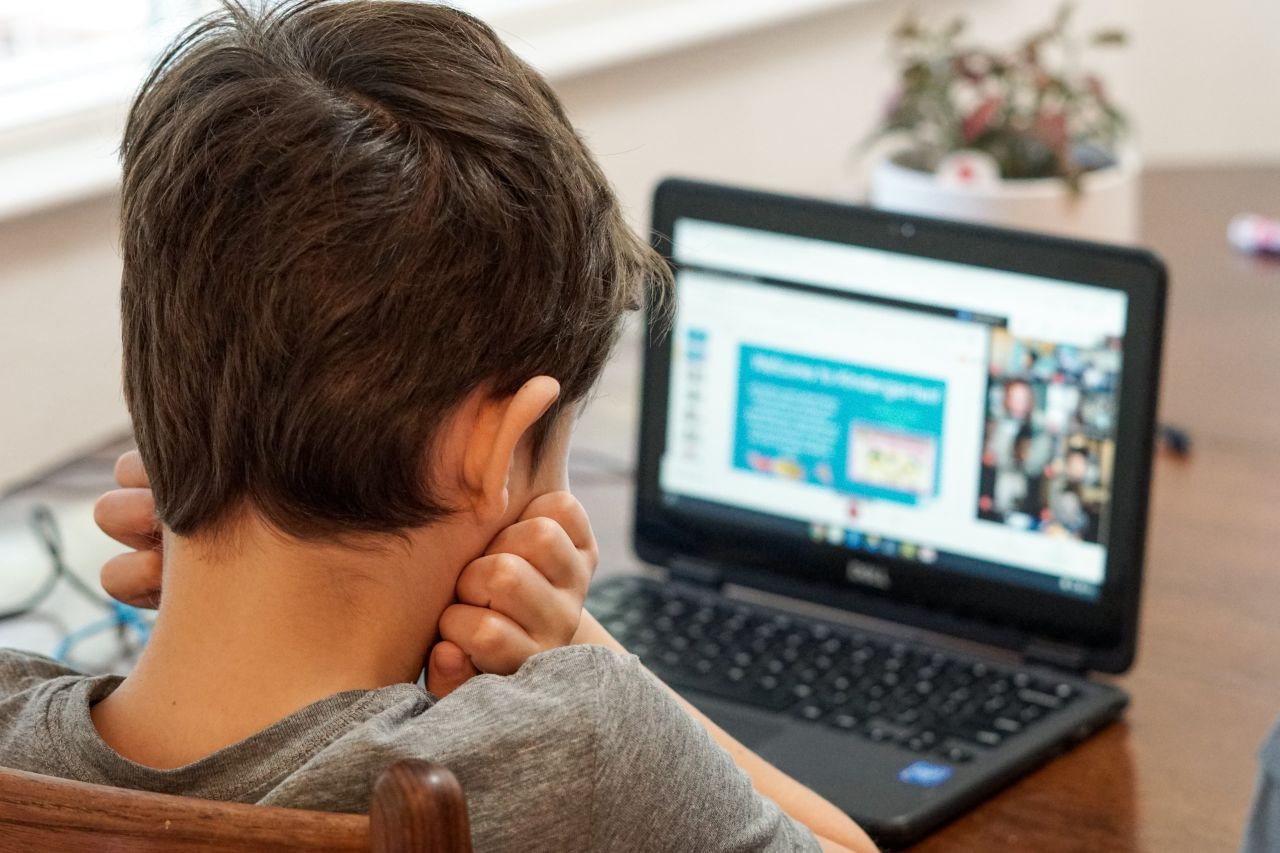Teachers use many different tools to measure how well their students have learned a concept or topic, such as pop quizzes, standardised tests, oral presentations, and persuasive essays. But to some degree, the correct use of these assessments relies on the subject matter being taught traditionally in a traditional school environment by a traditional kind of teacher!
When you homeschool your child, you might ask yourself, "How do I know if my child is learning anything?" One of the most common questions asked by parents new to homeschooling is because the learning style is so different from traditional schooling.
It doesn't mean you can't measure your child's learning at all during homeschooling, but that you have to find creative ways to evaluate their progress. If you're concerned with having a quantifiable record of what your child knows (and, by default, what they don't know yet), here are some ideas for figuring it out.
One of the most important things you can do as a homeschooling parent is to figure out how to measure your child's learning. It can be tricky, especially if your child is young or doesn't have much experience with traditional schooling.
But don't worry, there are plenty of ways to track your child's progress and make sure they're learning what they need to learn. In this post, we'll talk about some of the best methods for measuring progress in homeschooling and give you some tips on using them. So read on for all the info you need!
Taking A Different Approach
In theory, you could spring a surprise spelling quiz on your child or ask them to stand at the front of your living room and give a presentation on their latest history unit. But those aren't the only ways to understand what your child has learned, and, for the most part, those types of assessments work better when the information has been taught in a classroom.
It might seem redundant to have your child do a book report on the chapter book they read when they spent three weeks gushing over every detail of the plot and characters at the dinner table. But, on the other hand, you know they know the material, so it may not be necessary to "test" them per se.
Within the walls of your homeschool, the assessment will likely look much different than it does in a traditional school.
When you teach your child, you assess their progress as they learn. For example, maybe you already know they've got their multiplication tables down but are struggling with division because you're working with your child regularly and have a solid understanding of what they know and don't know.
In a traditional classroom, one teacher may be responsible for many students. Therefore, a classroom teacher might not have the same intimate, one-to-one knowledge of each student's progress and will rely on more standardised evaluations to see if their students are learning new material.
Frequently Asked Questions
So how many hours do you homeschool a first-grader? Typically, two hours a day is more than enough. However, some homeschoolers find that their children learn more effectively when they break their lessons up into 15-20 minute increments since it keeps them engaged and better focused.
Research suggests homeschooled children tend to do better on standardised tests, stick around longer in college, and do better once they're enrolled. For example, a 2009 study showed that the proportion of homeschoolers who graduated from college was about 67%, while among public school students, it was 59%.
Students homeschooling under the homeschool statute must take standardised tests annually. Annual testing is required, but results do not need to be submitted to the school district. Testing is required under the "notice" or "approval" option, but there are options in how you meet that requirement.
That's why many homeschooling families opt to start the day with routines like chores or music practice. In addition, many families enjoy beginning with "morning time" activities such as reading aloud, completing memory work (such as math facts or poetry), and listening to music or creating art.
Suppose the private school your child attends cannot provide an evaluation. In that case, you should contact the child to find the office of the local public school system your child would be attending and request that they complete an evaluation to determine if your daughter has a learning disability.
How Much Vs. How Well
Many new homeschooling parents stress whether their child is learning "enough," but what does "enough" really mean, and where does our definition come from?
Much of what kids learn in each grade level is based on a school district's adopted curriculum or the material that standardised tests cover, which means external factors drive both the content and pace of learning in traditional schools.
When learning at home, your child doesn't need to follow a traditional trajectory. Instead, you can start wherever they are developmentally and work your way up from there, taking things as fast or as slow as necessary. This way, you can focus less on how much your child is learning in terms of quantity and more on how well they're learning the material.
For example, let's say you plan to cover all of the classifications in the animal kingdom over five weeks but find yourself falling behind. You spent three weeks on birds, not one because your child wasn't ready to move on to reptiles: they wanted to build a birdhouse, search for birds on a nature walk, visit a local aviary, and watch a documentary about birds more than once.
Did you "fail" in this scenario? No! Instead of thinking your child learned less because they got sidetracked, consider the depth of their learning here—that's a better metric for evaluating their progress than the quantity of what they accomplished in a certain time frame.
Creative Assessments
Ready to see how well your child is learning what you're teaching them? Here are some outside-the-box ideas for measuring their progress:
Talk To Them
Better yet, ask them to talk to you! Maybe you can ask your child what they learned at school at dinnertime with other family members.
You can require that they only share one thing, but that one thing will likely spin-off into a larger conversation. Asking your child to explain what they've learned to someone other than the person who taught them is a good way to see if they've retained any information.
Switch Roles
There's an old saying that you don't know something unless you can teach it to someone else, and it holds some truth: putting your child in the role of teacher rather than the student can help you assess what they've learned.
Try asking an older child to coach a younger sibling on addition and subtraction facts or read a picture book together so the older sibling can help the younger sound out words they don't know.
Give Them Projects
Instead of assigning tests, quizzes, and reports, you can assign your child projects. First, please give them a recipe and instruct them to triple it by multiplying ingredient amounts (some of which can be fractions!). Next, ask them to design a simple machine to perform necessary household tasks.
Additionally, you can tell them you're planning a road trip and need to map out a route that gets you a certain amount of time and plan for stops every 100 miles. This approach lets you see both what they've learned and how well they can apply their knowledge.
Think Digital
Most of us have stood in front of a classroom of our peers, trembling as we make our way through an oral presentation worth 30 per cent of our quarter grade. And while learning the skills of public speaking and reporting are valuable, delivering this kind of presentation isn't the only way for your child to learn them.
Remember that there's a whole world outside of your home and that the internet allows your child to present information in many ways to a larger audience.
Your child can record a kid-friendly video and post it on YouTube, put together a short-but-informative TikTok, or even make an iMovie-style presentation to show family and friends.
As a parent, you need to consider your child's safety online and determine how public, if at all; their video content should be. For example, you may want to opt for keeping your YouTube video private and only share the link to trusted contacts or have your child create a TikTok video without actually uploading it to the platform.
Look For Progress, Not Percentages
With the mindset of assessing quality versus quantity, don't fall into the trap of thinking your child isn't doing well in the homeschool because they only answered 60 per cent of his maths questions correctly—you need to consider the context of their learning.
If they only answered 40 per cent correctly the last time you evaluated them, they made progress, and that's an important metric. (If you are consistently answering 60 per cent correctly over some time, then you'll want to look into why.)
Open-Book Tests
Many homeschool families prefer to teach their kids how to find and utilise information rather than memorising it, focusing on the art of learning how to use dictionaries, encyclopaedias, and trusted digital resources when they have a question.
Using this approach, you may want to consider doing open-book tests, where your child's ability to find and interpret the information they need is prioritised over rote memorisation.
However, memorisation is a useful tool! Memorising facts is like exercising a muscle; it makes your brain stronger in other ways.
Plus, some facts—like two plus two equals four—need to be memorised to pave the way for more complicated work down the line.
But there is a difference between useful memorisation and memorisation as a shortcut to true understanding. (How many of us have crammed for tests last-minute, memorising facts just long enough to get a good grade before promptly forgetting everything?)
Make sure the things you ask your child to memorise will be helpful as your child moves through grade levels.
Observe Their Learning Process
How do they respond when they don't know the answer to something? Do they know where to look or how to ask for help? Are they eager to learn more about their favourite topics? Are they constantly asking you questions about dolphins, math problems, or U.S. presidents?
A child who is actively engaged in their education—who seeks out information and wants to fill gaps in their knowledge—is a child who is learning to love the simple act of learning. That's a child who is successfully homeschooling!
Step Back
As a homeschooling parent, you're probably pretty involved in the minutiae of your child's learning process, but that might mean you're unintentionally inserting yourself into their education more often than you should.
It's good for all students to struggle with challenges from time to time, whether solving a tricky word problem or reading a book above their usual level.
Make sure that sometimes you step back rather than in, giving your child the space to resolve learning challenges on their own. If they can't, they may be too reliant on you—and you'll learn something about how well they're mastering the material you're teaching them.
Maintain A Portfolio
It can be hard to see how far your child has come without a visual representation, so consider keeping a portfolio to look back through from time to time.
Throughout the year, including notable projects, artwork, and assignments, as well as your lesson plans, to make it easy to track just how much learning your child has done. It will probably be more than you think!
When To Use Formal Tests
Even though we've avoided more formal, standardised evaluation methods in this list, you can test some concepts more formally.
Maths And Spelling
Things that rely on memorisation—like spelling, states and capitals, or 1 to 10 addition and subtraction facts—may be best learned through the kind of drills that happen with flashcards, pop quizzes, and timed tests.
Language Arts
With the language arts, your child must know how to express themselves in writing without your help; the occasional research paper or persuasive essay can be useful in figuring out where their skills are and which ones, if any, need strengthening. The same goes for presentations and book reports ensuring that they can interpret information and share it with others.
Know Your State's Homeschooling Laws
As always, make sure you know what the homeschooling laws are in your state. Some states require annual testing of homeschoolers through their local school district.
Many homeschoolers also choose to take the SATs or ACTs in high school to prepare for college applications, so at some point, it may be necessary for your child to get comfortable with formal test-taking (even if it isn't a priority in your homeschool).
If you're not confident in assessing your child's learning, you can look into hiring a teacher or private tutor to do it for you. There may be several education professionals in your local area available for a work-for-hire arrangement, with the skills (and outside perspective) to evaluate your child's knowledge in certain topics.
Advantages Of Homeschooling
Homeschooled kids benefit from one-on-one attention, as well as being able to learn more at their own pace. Homeschooled kids also get to experience a variety of hands-on learning opportunities. They can also volunteer in their local community. They volunteer or participate in service-learning projects. It helps them excel in life skills.
While Preparing For Homeschooling
Regardless of your child's age, it's a good idea to start planning for the school year now. It gives parents enough time to get organised.
Visit the library and talk to other homeschooled people to figure out why you are doing this. Doing so will help map out the best way to maximise the many advantages of this decision.
Many states have specific regulations that parents must follow regarding homeschooling. These regulations vary depending on the state.
You can also learn about various activities that your child can do.
You can also buy the curriculum separately. It can be purchased online or through catalogues.
Are you looking for a place to work or study? Then, you can find various areas to accommodate these needs.
Set realistic expectations for their kids during the beginning of their homeschooling journey. It can help avoid setting too many unrealistic goals.
A plan helps set goals and track one's work. It also helps avoid making a schedule that'll be too restrictive.
Most homeschool parents experience isolation issues when they start. They often feel that they are isolated from their peers and cannot connect with them.
Can We Evaluate Learning By Doing Homeschooling?
Teachers use various tools to measure the learning of their students. These include regular assessments, such as standardised tests and pop quizzes. When you homeschool, it's very common for parents to ask, how do I know if my kid is learning anything? It doesn't mean that you can't measure your kid's learning, just that you have to find ways to evaluate it. There are some ideas for figuring it all out.
It is always good to know why you assess and what you should expect from an assessment. There are differences between a teacher assessing a student at a traditional school and homeschooling.
Know Why You Are Assessing
Instead of just asking your child to complete a spelling test, try different assessments that will help you understand their learning. There are also other ways to assess. As a parent, it is important to remember that this assessment makes them aware of their learning. It might seem like a waste to report on the book they read. But, hey, it's part of their learning process. You know the material, so they may not need to test them per se. Assessment will be different within the walls of your homeschool. When you teach, you assess the child's progress as they learn. It's important to have a solid understanding of what they don't know. They may already know, but they're struggling to learn. In a traditional classroom, the teacher may have multiple students. Also, they may not have the same intimate knowledge of their students' progress. But here, it is a single student, and you can invest more.
Let Them Learn Enough At Their Pace.
Many new homeschooling parents are worried that their kids are not learning enough. What does "enough" really mean? Most kids start learning about topics covered by standardised tests and curriculum changes at an early age. These factors are only part of the learning curve that drives learning in traditional public schools. When your child is learning at home, it doesn't have to follow a traditional path. Instead, start wherever they are and work their way up. For example, you plan to cover all of the animal kingdom's classifications for five weeks. However, after a few weeks, you suddenly find yourself falling behind. You might have thought that your child got distracted and didn't learn enough. Instead, think about the depth of their learning and how they fared in a given time frame.
Progress Over Percentages
You don't need to be a genius to know that your child is doing well in homeschool. Just make sure that they are learning in the context of their current abilities. For example, if they only responded to 40 per cent correctly, they didn't make progress. But, on the other hand, if they consistently answered 60 per cent correctly, they made progress.
Conclusion
Measuring your child's progress while homeschooling can seem daunting, but it doesn't have to be. With the right tools and resources, you can track your child's learning in a way that makes you both feel confident and comfortable. We hope our tips have helped give you a starting point for measuring your little learner's progress.


